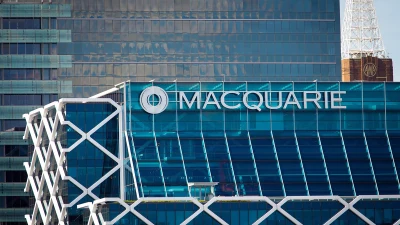Macquarie Group joins world’s top 50 asset managers



Macquarie Group has joined the top 50 investment managers across the globe, but Australian firms have seen a decrease in assets under management (AUM).
Research from the Thinking Ahead Institute has revealed that Macquarie Group saw a seven-place gain in ranking to 48 in 2022, up from 55 the previous year. It was the only Australian investment manager to rank in the top 50.
Macquarie Group was also one of the fastest growing firms in the top 50 between 2017 and 2022, recording an 8 per cent AUM growth to US$542 billion ($859 billion).
Looking at individual names, IFM Investors was the second largest Australian asset manager after Macquarie Group. This was followed by Pendal Group, MLC Asset Management and AMP Capital.
However, Australian investment managers saw a 6.6 per cent decline in AUM over the course of 2022, impacted by the weakening Australian dollar.
The research firm discovered that Australian managers in the top 500 with active equity exposure were negatively affected by the shift from active to passive strategies, particularly by super funds who were reconsidering their allocations in light of Your Future, Your Super.
“Even though Australian equities performed better than many other developed markets in 2022, local managers with more exposure to equity business saw their rankings decline. By comparison, managers with exposure to alternative asset classes such as infrastructure and real estate stacked up reasonably well,” said Leslie Mao, Australian head of equity research and co-portfolio manager at WTW.
“Another factor that saw a drop in AUM among Australian managers is the ongoing consolidation and internalisation happening within superannuation funds. Some managers, regardless of how they performed, lost assets during this period,” Mao added.
Overall, the globe’s 500 largest investment managers recorded a significant US$17 trillion decline, or 13.7 per cent, to US$113.7 trillion at the end of 2022. This compared to US$131.7 trillion the previous year.
The Thinking Ahead Institute described this as the first significant fall in AUM since the 2008 global financial crisis.
The largest fund manager overall was BlackRock with more than US$8 trillion in AUM.
Recommended for you
Having officially opened its doors, ETF Shares – led by three former Global X employees – has now launched its first three ETF vehicles on Cboe Australia for financial advisers.
Platinum Asset Management has lost a near-$1 billion institutional mandate as data shows its funds under management fell below $10 billion in April.
Betashares and Global X have announced they will both be launching new products focused on defined income bonds and Chinese technology, respectively.
Sydney investment manager Vado Private has welcomed a new director and head of funds management to its team as it seeks to grow its presence in the Australian private credit market.















